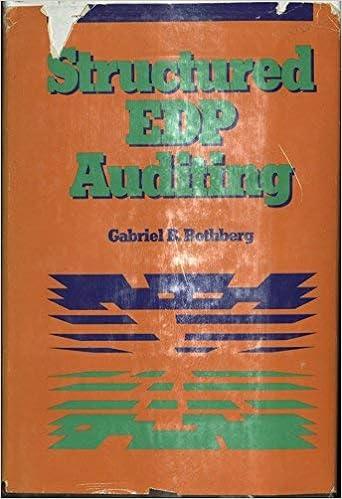Question
Q1. Imagine that wed like to invest in a small startup company. We have secret information (given to us from a legal source, like statistics,
Q1. Imagine that wed like to invest in a small startup company. We have secret information (given to us from a legal source, like statistics, so that we arent insider trading or anything like that) that the startup will have 4,000 dollars of profits for its first 5 years, then 20,000 dollars of profits for the next 10 years, and then 50,000 dollars of profits for the 10 years after that.
After year 25, the company will go under and pay 0 profits.
The company would like you to buy 50% of its shares, which means that you will receive 50% of all of the future profits.
If you discount the future at =0.05r=0.05, how much would you be willing to pay?
Q2.
In economics, when an individual has knowledge, skills, or education that provides them with a source of future income, we call it human capital. When a student graduating from high school is considering whether to continue with post-secondary education, they may consider that it gives them higher-paying jobs in the future, but requires that they commence work only after graduation.
Consider the simplified example where a student has perfectly forecastable employment and is given two choices:
- Begin working immediately and make 40,000 dollars a year until they retire 40 years later.
- Pay 5,000 dollars a year for the next 4 years to attend university and then get a job paying 50,000 dollars a year until they retire 40 years after making the college attendance decision.
Should the student enroll in school if the discount rate is =0.05?
Step by Step Solution
There are 3 Steps involved in it
Step: 1

Get Instant Access to Expert-Tailored Solutions
See step-by-step solutions with expert insights and AI powered tools for academic success
Step: 2

Step: 3

Ace Your Homework with AI
Get the answers you need in no time with our AI-driven, step-by-step assistance
Get Started


